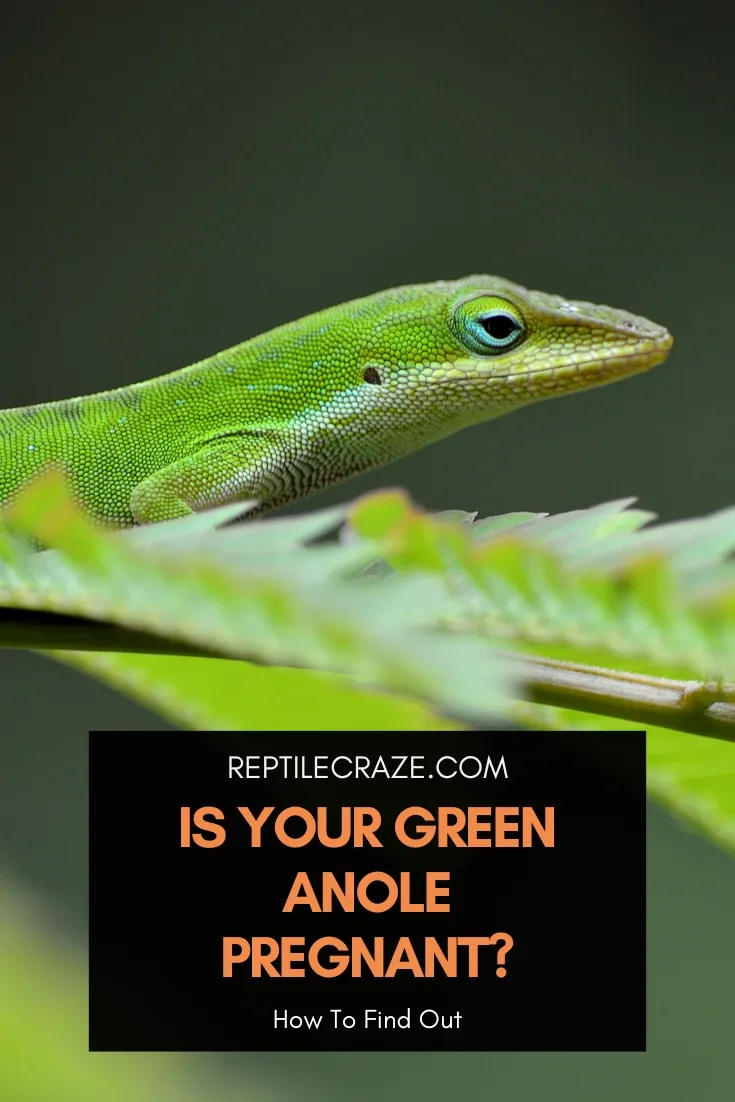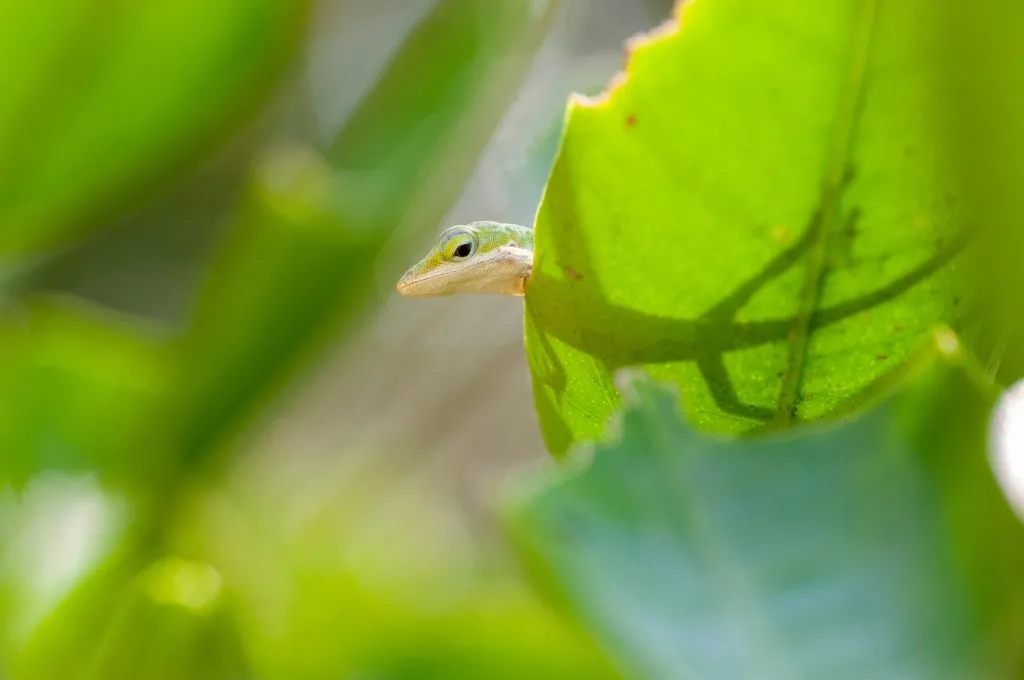
Breeding reptiles is a hobby that most enthusiasts become interested in at some point. Breeding lizards, like green anoles, can be challenging yet rewarding. One of the critical steps in ensuring success is being able to confirm that your female green anole is pregnant and successfully carrying eggs.
Female green anoles display various physical and behavioral changes when they are pregnant (or gravid, for a more accurate term). Their stomach appears larger, they become slower, and they start digging and nesting. They also bask more frequently and become more aggressive.
Successfully identifying a pregnant green anole will allow you to make the necessary preparations to maintain her health and ensure optimum egg-laying. This article delves into the common signs of pregnancy in green anoles and what you can do as preparation.
Table of Contents
Signs That Your Green Anole Is Pregnant
As the egg starts to develop from the female green anole’s ovary following a successful mating, hormonal changes will occur, leading to physical and behavioral signs of pregnancy.
Some of these signs are also due to the reproductive load that the female is carrying as she grows bigger.
The most common signs of pregnancy in female green anoles are:
An obvious enlargement of the abdomen
Due to the egg growing inside the body, her abdomen will look swollen and firm to touch. Female green anoles that are suspected to be pregnant should be gently and cautiously handled.
Slower movements and less activity

As the green anole becomes bigger and heavier, she will start to move around less. She will also become more sluggish in her movements.
Less food intake
In the wild, pregnant green anoles forage less to avoid predation while they are much slower. In captivity, you may also observe them consuming less
Frequent basking
Pregnant reptiles often bask more frequently and stay for longer periods in the warmer spots of their enclosure.
Digging and nesting behavior
In preparation for egg-laying, a female green anole would choose a spot in the enclosure to dig a shallow hole for her nest.
Increased aggression
Gravid lizards will become secretive and aggressive, especially before they lay their eggs. Refrain from holding your green anole during this period, as this will also add on to her stress.
What You Can Do For Your Pregnant Green Anole
Complete preparations should be made to ensure that your pregant green anole is healthy. This will increase the chances of a successful laying and hatching of her eggs.
Green Anoles Have an Unusual Way to Lay Eggs
Female green anoles differ from most other lizards that lay a single large clutch of eggs during breeding season. Instead, green anoles can store sperm, which fertilize their ovaries one after another. This phenomenon is known as delayed fertlization.
A clutch is usually just a single egg, and so from a single mating period, females can lay a single egg in the shallow nests that they have dug every 7 to 10 days.
Tip: Do you have other questions about green anoles? Read our green anole care guide for help!
On average, a female green anole would lay around 6 to 9 eggs in a breeding period. The eggs take 5 to 7 weeks to hatch.
Provide Care for Your Pregnant Green Anole and Her Eggs
Nutrition is very important to ensure that your pregnant green anole maintains her health during this stressful period of life.
Calcium supplementation is highly recommended as her body will need ample calcium and Vitamin D3 to create strong, hard shells for the eggs.
Green anoles will not look after their eggs after laying them. At this point, you may collect them to provide a more suitable environment for their incubation.
A reptile incubator allows you to easily control the appropriate temperature and humidity conditions. If you are on a budget, vermiculite, sphagnum moss, or commercial incubation substrate are also good options.
- Enchi Ball Python: A Unique and Stunning Morph of Python regius - March 27, 2025
- Emerald Tree Monitor: The Enigmatic Green Guardian of the Rainforest - March 26, 2025
- The Egyptian Cobra (Naja haje): A Fascinating Serpent - March 25, 2025
